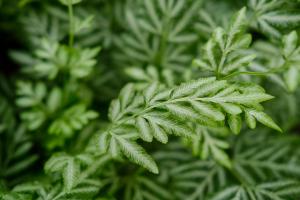Can You Water Plants with Blackwater?
Blackwater is wastewater that comes from the toilets, showers, and sinks of household properties. It is usually not treated and can contain harmful pollutants and pathogens that pose risks to human health and the environment. However, it is possible to treat blackwater and reuse it for non-potable purposes, including irrigation and flushing toilets. But can you water plants with blackwater? Let's explore this question and see if it is a safe and feasible practice.
Understanding Blackwater
Blackwater is different from greywater, which is wastewater from sources like washing machines, dishwashers, and bathtubs. Greywater can be treated and reused for non-potable purposes without posing significant health risks. However, blackwater contains fecal matter, urine, and other organic matter, which can harbor harmful bacteria, viruses, and parasites that cause gastrointestinal illnesses, respiratory infections, and other health problems. Blackwater also contains high levels of nitrogen and phosphorus, which can lead to eutrophication and other environmental issues.
Treating Blackwater for Irrigation
Despite its potential health and environmental risks, blackwater can be treated and reused for irrigation. The treatment process involves several steps, including settling, screening, biodegradation, and disinfection. The settled solids, or sludge, are removed and processed separately, while the liquid is subjected to biological and chemical treatments to break down the organic matter and neutralize the pathogens. The treated blackwater is then disinfected with chlorine or other agents to kill any remaining microorganisms before being distributed for irrigation.
Benefits and Drawbacks of Blackwater Irrigation
The benefit of blackwater irrigation is that it can reduce the demand for freshwater and lessen the environmental impact of wastewater disposal. In many regions, water scarcity and drought conditions make using non-potable sources like blackwater a more sustainable option than relying solely on freshwater. Blackwater irrigation can also reduce the need for chemical fertilizers, as the treated water contains nutrients that can benefit plant growth.
However, blackwater irrigation also has drawbacks. First, it requires specialized equipment and infrastructure to treat and distribute the water, which can be costly and complex. Second, the safety of blackwater depends on the quality of its treatment and disinfection, which can be difficult to guarantee in some cases. Third, certain plants may be more sensitive to the contaminants in blackwater than others, which can affect their growth and yield. It is important to assess the risks and benefits of blackwater irrigation on a case-by-case basis before implementing it in a particular setting.
Conclusion
In conclusion, it is possible to water plants with blackwater if it is properly treated and disinfected. Blackwater irrigation can reduce water consumption and environmental impact, but it also requires careful planning and management to ensure its safety and efficacy. Whether or not to use blackwater for irrigation is a complex decision that should involve input from experts in wastewater treatment, environmental health, and agriculture.

 how many times do yo...
how many times do yo... how many planted tre...
how many planted tre... how many pine trees ...
how many pine trees ... how many pecan trees...
how many pecan trees... how many plants comp...
how many plants comp... how many plants can ...
how many plants can ... how many plants and ...
how many plants and ... how many pepper plan...
how many pepper plan...
































